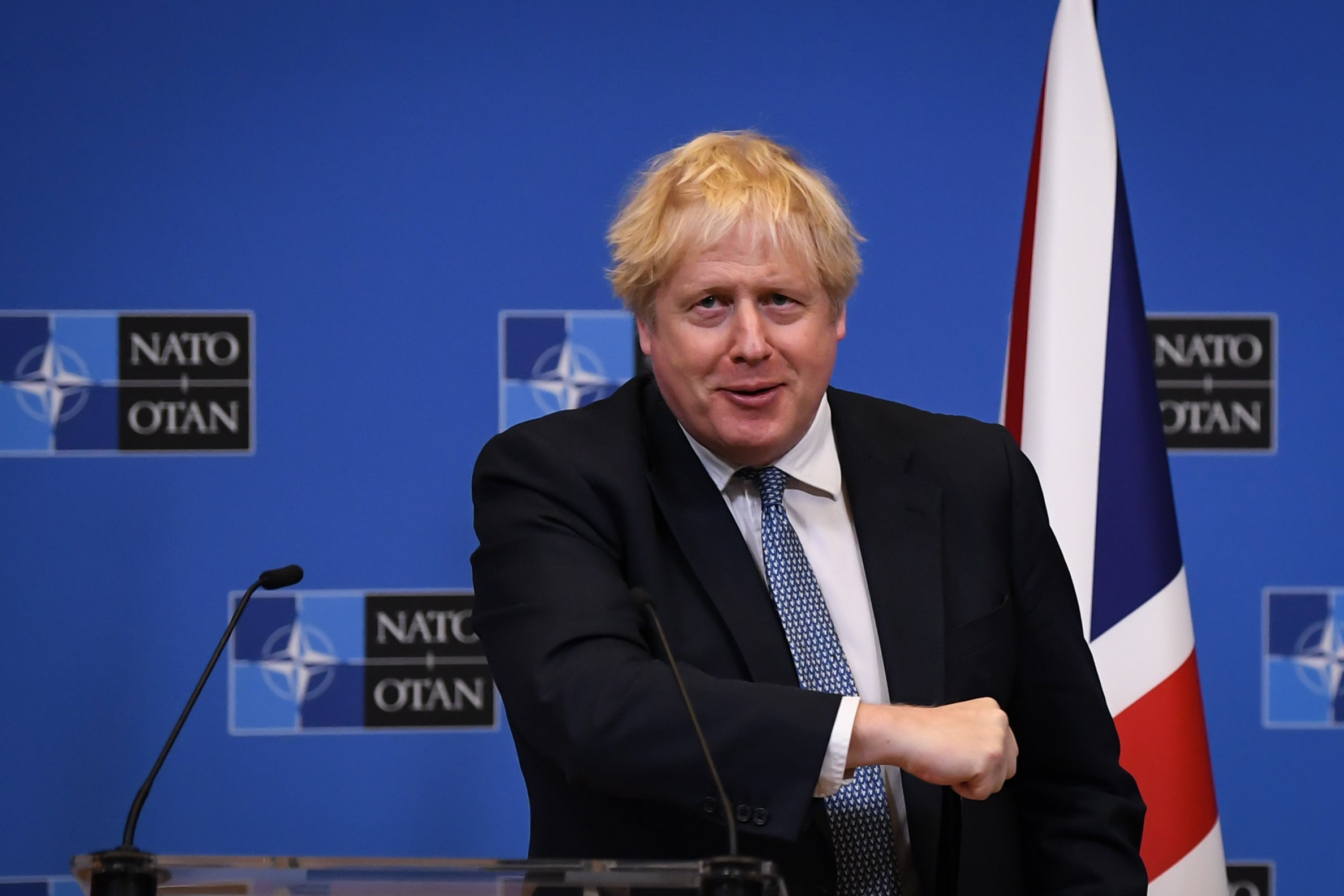Britain to send 6,000 more missiles to Ukraine, says Boris Johnson
The Prime Minister will call for an emergency summit of Nato leaders to ‘keep the flame of freedom alive’ in Ukraine.

Boris Johnson will urge western allies to help “keep the flame of freedom alive” in Ukraine as he pledged the UK will supply thousands more missiles to the military in Kyiv.
The Prime Minister is joining fellow Nato leaders in Brussels for an emergency summit to discuss the latest situation a month on from the start of the Russian invasion.
He will use the visit to set out details of a new support package for Ukrainian forces, including 6,000 more missiles comprising anti-tank and high-explosive weaponry.
It comes as Ukrainian President Volodymyr Zelensky called for worldwide demonstrations on Thursday to mark exactly a month since Russia launched its invasion.
The Nato meeting, which will be addressed remotely by Mr Zelensky, is expected to sign off on the formation of four new battlegroups in eastern Europe.
Nato secretary general Jens Stoltenberg said the battlegroups – each numbering between 1,000 and 1,500 troops – would be deployed in Hungary, Slovakia, Romania and Bulgaria.
The alliance already has 40,000 troops in Europe under its direct command, nearly 10 times the number it had a few months ago.
Mr Stoltenberg told a news conference on Wednesday that the forces will remain in place “as long as necessary”.
“This is a significant reinforcement of our presence in the east with air, sea and land forces,” he said.
“We are there to protect and defend allies, ready to respond massively to any potential threat or attack against any Nato allied country.”
He said he expected leaders would agree additional support for Ukraine, including cybersecurity assistance and equipment to help protect against chemical, biological, radiological and nuclear threats.
They are also expected to address the role of China, amid concerns that Beijing has been supporting Russia disinformation efforts and could be preparing to supply military equipment.
Ahead of President Joe Biden’s attendance at the summit, the US administration announced it had formally assessed that Russian forces had committed war crimes in Ukraine.
Secretary of state Antony Blinken cited the besieged city of Mariupol where an estimated 100,000 people remain trapped with chronic shortages of food and clean drinking water.
In a call with Mr Zelensky on Wednesday, Mr Johnson said the bombardment of civilian areas in the city was “unconscionable” and demanded a response from the international community.
The Prime Minister said it was time for western powers to step up the supply of military hardware to Kyiv as well as increasing sanctions against Moscow.
“We cannot and will not stand by while Russia grinds Ukraine’s towns and cities into dust,” he said in a statement ahead of the summit.
“The United Kingdom will work with our allies to step up military and economic support to Ukraine, strengthening their defences as they turn the tide in this fight.
“One month into this crisis, the international community faces a choice. We can keep the flame of freedom alive in Ukraine, or risk it being snuffed out across Europe and the world.”
As well as sending more missiles, the UK is providing £25 million from the Foreign Office’s conflict security and stabilisation fund to help pay the salaries of Ukrainian soldiers and pilots.
Britain has already sent more than 4,000 anti-tank weapons to Ukraine, including next-generation light anti-tank weapons systems (Nlaws) and Javelin missiles.
It is also supplying and training Ukrainian troops in the use of Starstreak high-velocity anti-air missiles as well as providing body armour, helmets and combat boots.
The Government will provide an additional £4.1 million to the BBC World Service to counter disinformation in Russia and Ukraine as well as new support for the International Criminal Court (ICC).
Justice Secretary Dominic Raab will chair a meeting of justice and foreign ministers in The Hague on Thursday to co-ordinate support for the ICC’s war crimes investigations.
He is expected to announce an additional £1 million in funding for the court, as well as new support from UK soldiers with expertise in intelligence gathering and Scotland Yard’s War Crimes Team.
Mr Raab said: “President Putin and his commanders should know that they will be held to account for their actions, and risk ending up spending the rest of their days behind bars.”
Bookmark popover
Removed from bookmarks